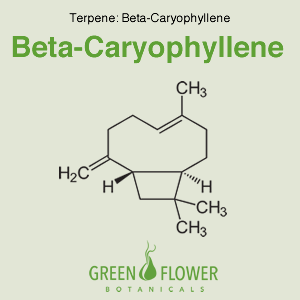
Beta Caryophyllene -Terpene
Description:
EFFECTS: Analgesic, Anti-inflammatory, Antioxidant, Gastric-protective.
Strains with Beta-Caryophyllene include ACDC, Durban Poison, Granddaddy Purple, Lemon Skunk, OG Kush and Trainwreck.
Beta-caryophyllene is a sesquiterpene. It is a unique terpene due to its large size and structure. Due to these properties, beta-caryophyllene is able to activate several receptors in the body, including CB2, which is usually activated most by CBD. Beta-caryophyllene has been shown to be an effective analgesic by regulating neuroinflammation and thermal hyperalgesia. Also as an antioxidant, beta-caryophyllene is effective as demonstrated by preventing lipid oxidation and scavenging other radicals. As and anti-inflammatory beta-caryophyllene has been proven to mediate kidney inflammation and its side effects. In addition, beta-caryophyllene has been eluted to be a gastric-protective.
⇩ View A – Z Index of Terpenes ⇩
Effects
Analgesic
Anti-inflammatory
Antioxidant
Gastric-protective
Research
Analgesic
The analgesic effects of beta-caryophyllene were evaluated in the rabbit conjunctival reflex test and in a rat phrenic nerve-hemidiaphragm preparation. Beta-caryophyllene attenuated thermal hyperalgesia and mechanical allodynia, and reduced spinal neuroinflammation. Also there were no signs of tolerance to the anti-hyperalgesic effects of BCP after prolonged treatment.
- Local anaesthetic activity of β-caryophyllene
- The cannabinoid CB2 receptor-selective phytocannabinoid beta-caryophyllene exerts analgesic effects in mouse models of inflammatory and neuropathic pain
Anti-oxidant
Beta-caryophyllene was demonstrated to have a high inhibitory capacity on lipid peroxidation and showed high scavenging activities against hydroxyl radicals and the superoxide anion.
Anti-inflammatory
In kidney cells, beta- caryophyllene successfully ameliorated cisplatin-induced kidney dysfunction, morphological damage, and renal inflammatory response. The effect of the compound was also correlated to mitigate oxidative and nitrative stress.
Gastric-protective
Caryophyllene was indicated to significantly inhibit gastric mucosal injuries induced by necrotizing agents, yet barely affects the secretion of gastric acid and pepsin. Caryophyllene produced anti-inflammatory effects, without indication of gastric mucosal damage typical of non-steroidal anti-inflammatory agents like aspirin and ibuprofen.
CBD Oils Containing Beta Caryophyllene
- Sale!
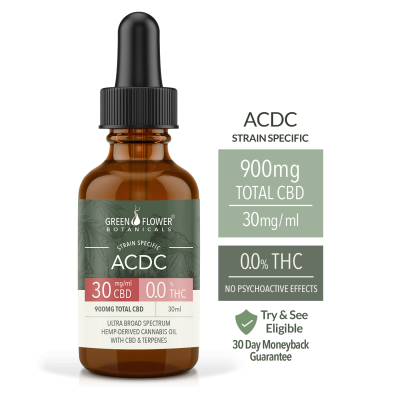
ACDC Strain 900mg CBD – 30mg/ml -Hemp Derived Cannabis Oil – 30ml
Original price was: $55.95.$41.96Current price is: $41.96. Learn MoreRead more - Sale!
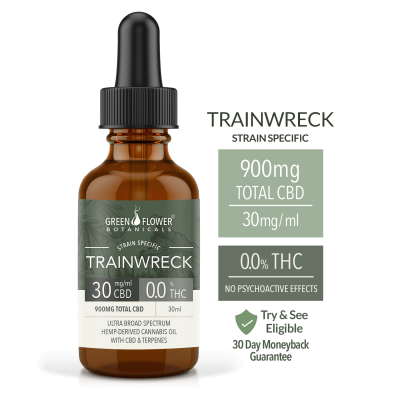
TRAINWRECK Strain 900mg CBD – 30mg/ml – Hemp Derived Cannabis Oil – 30ml
Original price was: $55.95.$41.96Current price is: $41.96. Learn MoreAdd to cart - Sale!
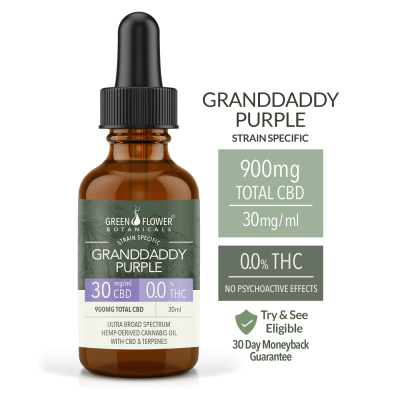
GRANDDADDY PURPLE Strain 900mg CBD – 30mg/ml – Hemp Derived Cannabis Oil – 30ml
Original price was: $55.95.$41.96Current price is: $41.96. Learn MoreRead more
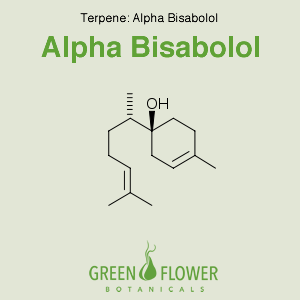
Alpha Bisabolol
EFFECTS: Analgesic, Anti-cancer, Anti-inflammatory, Antifibrosis, Antifungal, Antocoagulant, Drug Potentiator.
Learn about Alpha Bisabolol »
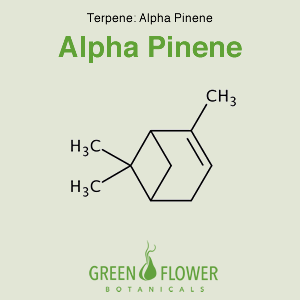
Alpha Pinene
EFFECTS: Anti-bacterial, Anti-cancer, Anti-inflammatory, Bronchodilator, Memory Enhancer.
Learn about Alpha Pinene »

Beta Caryophyllene
EFFECTS: Analgesic, Anti-inflammatory, Antioxidant, Gastric-protective.
Learn about Beta Caryophyllene »
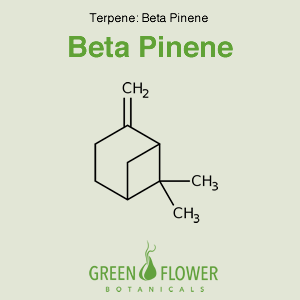
Beta Pinene
EFFECTS: Expectorant, Bronchodilator, Anti-inflammatory, Antiseptic.
Learn about Beta Pinene »
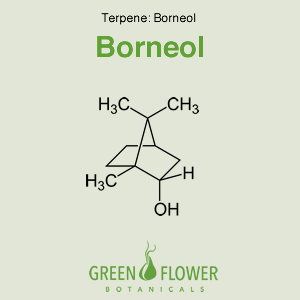
Borneol
EFFECTS: Analgesic, Anti-cancer, Anti-inflammatory, Antifibrosis, Antifungal, Antocoagulant, Drug Potentiator.
Learn about Borneol »
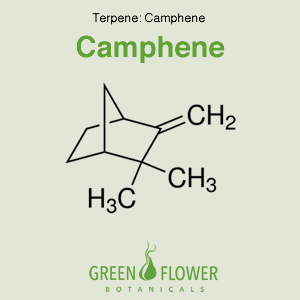
Camphene
EFFECTS: Hypolipidemic, Anti-bacterial, Antifungal.
Learn about Camphene »
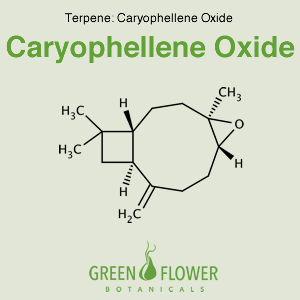
Caryophyllene Oxide
EFFECTS: Antifungal, Antocoagulant.
Learn about Caryophyllene Oxide »
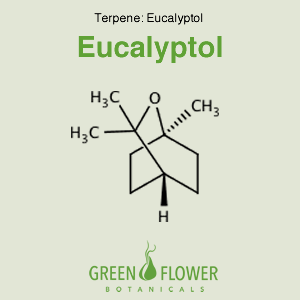
Eucalyptol
EFFECTS: Anti-Alzheimer's, Anti-Asthma, Anti-bacterial, Anti-cancer, Anti-inflammatory, Antioxidant.
Learn about Eucalyptol »
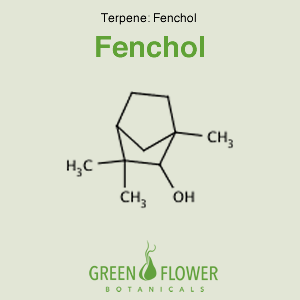
Fenchol
EFFECTS: Antioxidant, Antimicrobial, Antifungal.
Learn about Fenchol »
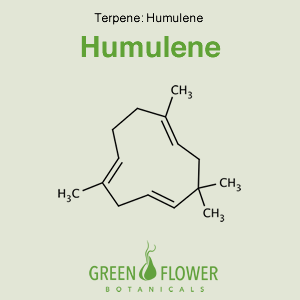
Humulene
EFFECTS: Anti-bacterial, Anti-cancer, Anti-inflammatory.
Learn about Humulene »
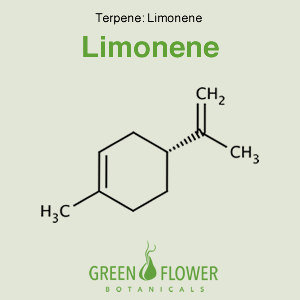
Limonene
EFFECTS: Anti-anxiety, Anti-cancer, Anti-inflammatory, Antidepressant.
Learn about Limonene »
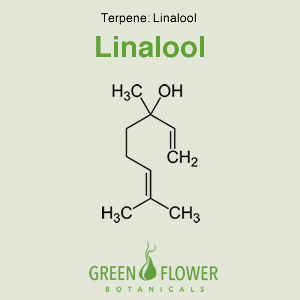
Linalool
EFFECTS: Analgesic, Anti-anxiety, Anti-inflammatory, Anticonvulsant, Sedative.
Learn about Linalool »
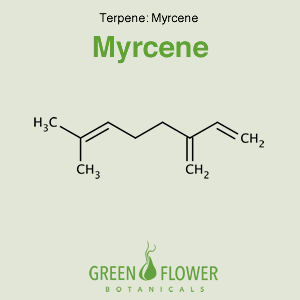
Myrcene
EFFECTS: Analgesic, Antioxidant, Sedative.
Learn about Myrcene »
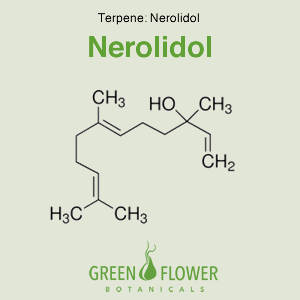
Nerolidol
EFFECTS: Antiprotozoan, Topical Drug Enhancer.
Learn about Nerolidol »
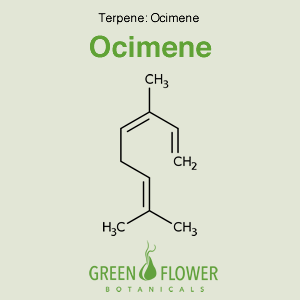
Ocimene
EFFECTS: Anti-inflammatory, Antifungal, Antiviral.
Learn about Ocimene »
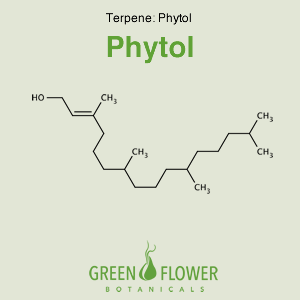
Phytol
EFFECTS: Antischistosomal, Anti-cancer, Hypolipidemic, Antidiabetic.
Learn about Phytol »
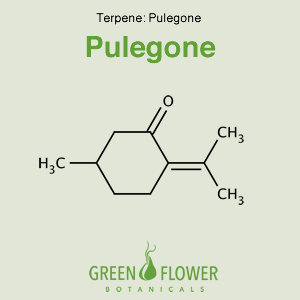
Pulegone
EFFECTS: Expectorant.
Learn about Pulegone »
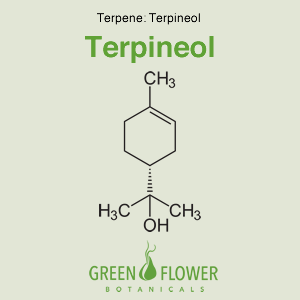
Terpineol
EFFECTS: Antibacterial, Antioxidant, Anti-cancer, Sedative, Anti-inflammatory.
Learn about Terpineol »
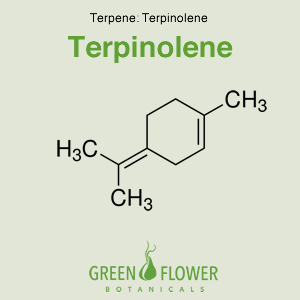
Terpinolene
EFFECTS: Anti-bacterial, Anti-cancer, Antioxidant, Sedative.
Learn about Terpinolene »
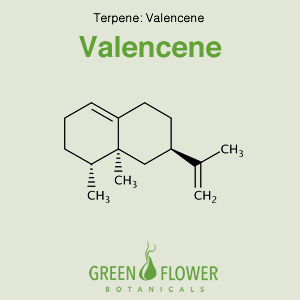
Valencene
EFFECTS: Anti-inflammatory.
Learn about Valencene »
